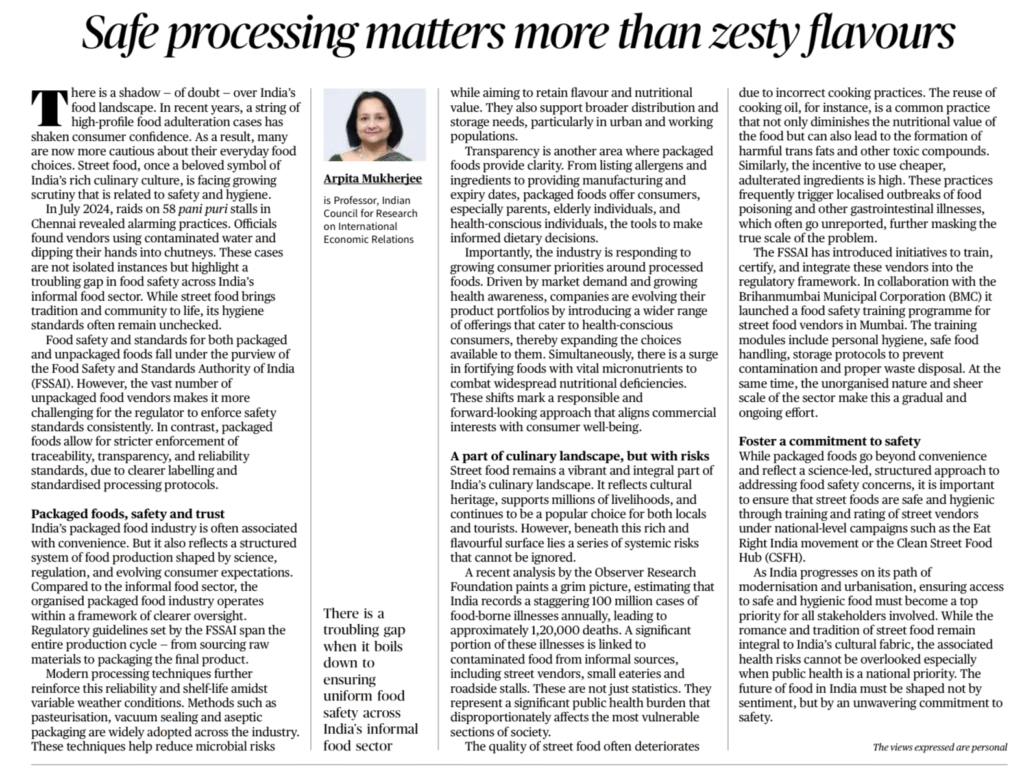1. Rising distrust in India’s food system
• Frequent adulteration scandals and poor hygiene have made consumers cautious about both packaged and street foods.
2. Street food hygiene remains a major challenge
• Investigations (e.g., Chennai pani puri case) show widespread contamination, unsafe water use, and poor cooking practices.
• Informal vendors operate with minimal oversight, leading to inconsistent safety standards.
3. Packaged foods have a structured, science-based system
• FSSAI regulations ensure traceability, labelling, transparency, and standardized processing.
• Techniques like pasteurisation, vacuum sealing, and aseptic packaging reduce microbial risks and extend shelf life.
4. Health-conscious consumer trends
• Demand for transparency and safe ingredients is rising.
• Industry is responding with healthier product portfolios and micronutrient fortification.
5. Informal sector poses the biggest food safety risk
• ORF estimates ~100 million food-borne illness cases and ~1.2 lakh deaths annually in India.
• Majority originate from informal vendors—stalls, carts, and roadside eateries.
6. Unsafe practices worsen risks
• Reuse of cooking oil, adulterated ingredients, contaminated water, and improper waste disposal are common.
• Such practices cause outbreaks that often go unreported.
7. Government efforts to formalise and train vendors
• FSSAI and municipal bodies run hygiene training, certification drives, and “Clean Street Food Hub” initiatives.
• Aim: improve food handling, storage, and waste management.
8. Need for strong regulatory commitment
• Packaged foods show that structured systems work; similar investment is needed for informal foods.
• Ensuring food safety must be treated as a public health priority, not sentiment.





